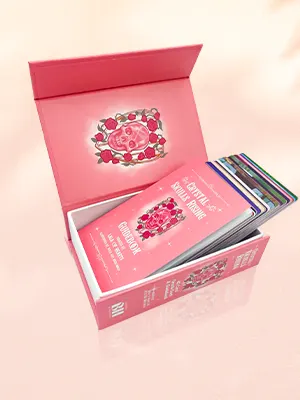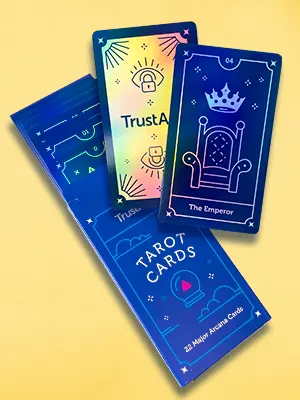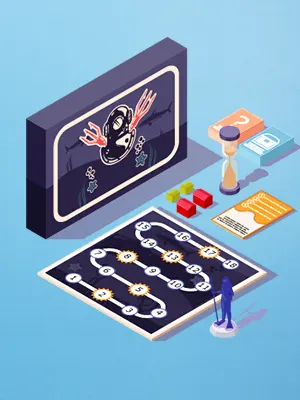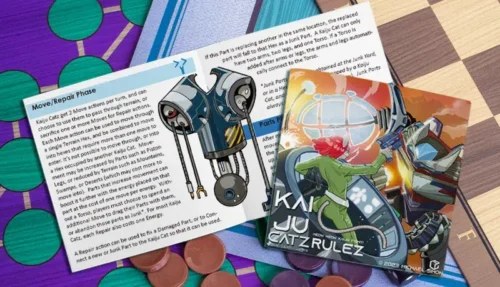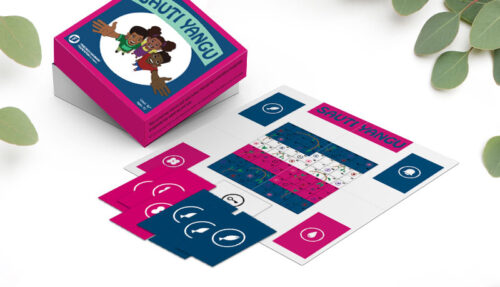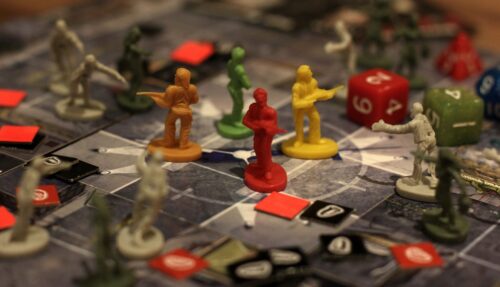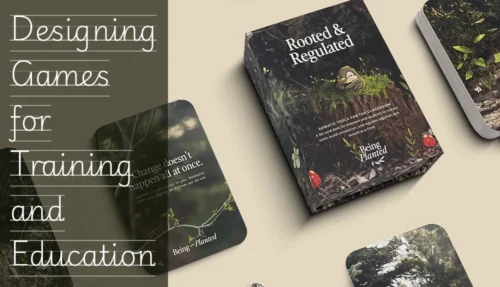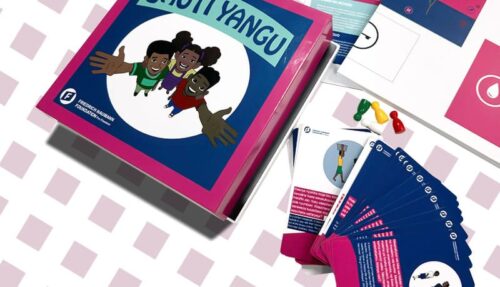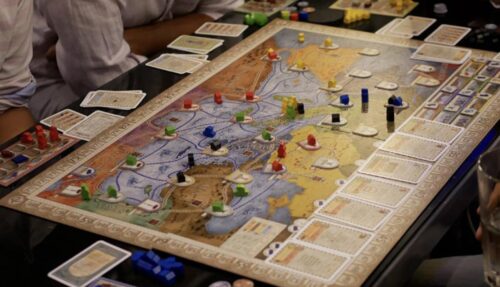Designing your board game is only one step in a longer and more complex process. Whether self-financing your project or generating capital through Kickstarter or another crowdfunding platform, at some point you'll need to get your game and components manufactured, boxed, and ready for sale.
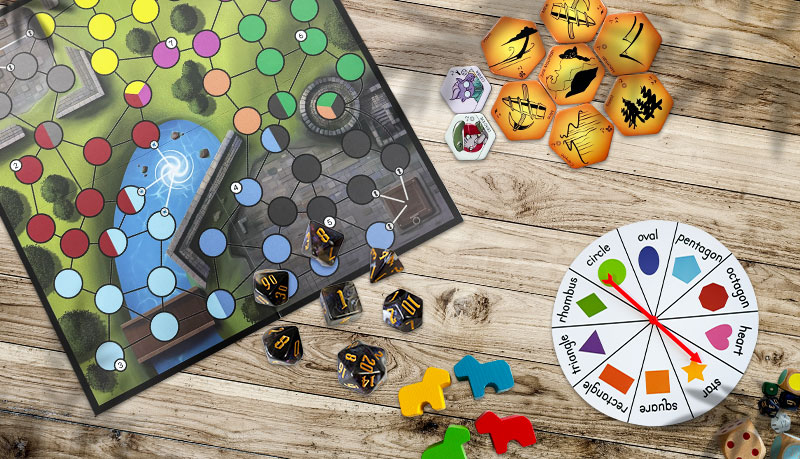
As an independent board game designer, the path to bringing your game to the table is filled with both fun and challenges. It’s enjoyable, for sure, but it’s also a lot of hard work. And most indie game developers must work within a tight budget to get the game out there in the world. One of the final and most critical hurdles to leap over is selecting the best printing and manufacturing service for your game. This decision can significantly impact the quality, cost, and overall success of your project. Concerns about print quality, production timelines, and budget constraints often weigh heavily on designers’ minds. And finding a printer that can handle the specific requirements of a board game – from support in digitizing your artwork files and getting them print-ready to sourcing standard components and manufacturing custom components – it’s vitally important to get all this set up right.
Another common worry is finding a printing company that truly understands the nuances of board game production over and above merely having the theoretical technical capacities. A good deal of indie designers have heard horror stories of misprints, delays, and unexpected costs through no fault of their own but due to failures on the part of the printer to fully grasp what goes into making a successful tabletop game. These concerns can make the process feel overwhelming, especially when you’re trying to navigate the plethora of options available. Just a quick Google search will turn up literally thousands of possibilities. It’s essential to find a partner who can deliver not just high-quality components but also reliable and communicative service and that “gets” where you’re coming from as an indie game developer.
So, to help you find your way through the mire and arrive safely at your best destination, in this post we’ll help you explore the key factors to consider when selecting printing services for your indie board game project. By understanding your needs, researching potential partners, and thoroughly assessing their offerings, you can make an informed decision that coheres with both your ambition and your budget.
But before we go into the specifics of what you should look for and how to go about finding the perfect printing service for your game, you might wonder why you should listen to us. Well, the answer to that is easy enough. We are a major international offset printing and packaging company with a specialist complete board game package covering everything from design file support to manufacture, boxing, storage and distribution. We’ve been in the game (pardon the pun!) for almost 30 years now and enjoy a global reputation for excellence. So, yes, right upfront, we’ll say that we’d like your business! But—and this is super-important—we want you to make your own decisions and we’ll be completely transparent and honest. You can use the help in this post to explore a range of services and choose the one that best fits your needs. We hope that will be us, but we recognize that you might not agree. No problem, we respect your decision and we do truly want to help you make the right one.
You must understand your printing needs
Before choosing a printing company, it is important for you to develop a clear understanding of your printing needs. This may seem obvious, but you’d maybe be surprised by the number of talented folks who come to us with a print request and they still haven’t figured out exactly what they need to print and build. So, get that clear and on paper (or some digital equivalent) first. It will be the first signpost to guide you to your destination. To figure out what you’re looking for, consider the following aspects of your board game:
- Game components: List all the components your game will include, such as cards, boards, tokens, dice, and miniatures. Leave nothing out, however small or “obvious” it may seem to you. If it’s going to be part of your game, then you’ll need to get it made or sourced somehow. Yes, even those dinky little pencils used for scoring. Each component might require different materials and manufacturing processes. For instance, cards will need different handling both in design and printing than custom-made miniatures, which will be injection molded. A comprehensive list helps you to make sure no part of your game is overlooked in the manufacturing process.
- Specifications: Determine the size, material, and finish for each component. For example, do you need linen-finished cards or a matte board? Have you considered that? What about holographic paper with UV spot coating? Or something else? Different materials and finishes can have a significant impact on the look and feel of your game as well as the turnaround time and the cost. So, make sure that your chosen specifications not only meet your artistic requirements but that they’ll be durable and easily usable during gameplay.
- Special features: Make a note of any special features your game requires, such as custom inserts in the packaging, unique and unusual packaging designs, or specific color matching for a brand or theme. These features can enhance the player experience and differentiate your game in the market. You’ll know how important that is from your last visit to the game store; all those shelves of endlessly similar looking game boxes to browse over! Be clear about these needs from the start, as they can affect both cost and production time. Discuss these features early with potential printers to make sure they can be executed just as you want them.
By defining these needs upfront, you can better position yourself to communicate your requirements with knowledge and confidence to potential printing companies and it’ll help you to figure out if they can meet your expectations.
How to research printing companies for board games
Once you have a clear understanding of your printing needs, including all your components and packaging, you’ll be armed and ready to research printing companies. As we’ve already noted, there’re literally thousands of potential options. So, at some point you’ll need to decide that it’s time to stop researching and make a decision. It can be quite a rabbit hole. But if you know what you’re looking for, it’ll certainly be easier and quicker to find. Here we’ve put together several steps we’re confident will help guide you:
- Specialization: While you needn’t worry if a company prints lots of different product lines—as most companies do in order to stay afloat and adapt to changing markets—you do want to reassure yourself at the outset that any company you consider working with has specialized knowledge, materials, processes, and manufacturing facilities designed for and capable of handling board games. Ideally, look for some evidence that at least someone on the team is a games enthusiast and is going to come at the work with a mix of knowledge and passion. Companies familiar with board game production will understand the unique challenges and standards of the industry and the specific needs of indies within that context. You shouldn’t have to explain to them what Kickstarter is, how it works, and what stretch goals are, for example. A game-focused company is more likely to provide valuable insights and suggestions that can improve your final product. Specialization often means they have streamlined processes that can save time and reduce errors, too.
- Reputation: Investigate the company’s reputation. You should ask questions like: How long have they been in business? What is their track record with indie projects? Longevity in the business can indicate reliability and experience. Check if they have successfully completed similar projects, which can give you confidence in their ability to handle your game. Look for any recurring issues in their reviews that might be a red flag. Likewise check reviews on monitored sites like TrustPilot to see what other customers have to say about their experience, how the company responds to questions or complaints, and to get a good feel for the “corporate culture” that the company will bring to the process and their relationship with you.
- Portfolio: Review their portfolio of previous projects to see if they have produced games similar to yours. A diverse portfolio showcases their capability to handle various types of games and components. It can also provide inspiration and reassurance that they can meet your specific needs. Pay attention to the quality and creativity demonstrated in their previous work.
How to assess quality and pricing
When you’re selecting a printing company to manage the production of your board game, it is super-important to assess the quality of their work and their pricing and the price/quality ratio. This is especially important if you have a restricted budget and can’t afford to make costly mistakes (who can? Or who wants to, anyway?) So, here’s how we suggest you approach this assessment:
- Request samples: Ask for samples of their previous board game projects to evaluate print quality, color accuracy, and overall craftsmanship. Physical samples of finished games are unlikely to be on offer for obvious reasons, but digital and video samples coupled with dummies can give you a tangible sense of the materials and printing techniques they use. Comparing samples from different companies can help you identify the best match for your quality standards. It’s also a good opportunity to get a sense of the durability of materials under typical gameplay conditions.
- Compare pricing: We recommend that you get quotes from multiple companies and compare them. Remember, higher quality often comes at a higher cost, so cheaper isn’t necessarily the best. Aim to find a balance that gives you the maximum return in quality while staying within your budget. Make sure to ask for detailed breakdowns of costs to understand what each quote includes. An itemized quotation will also give you the opportunity to cut and swap certain components to make the thing work financially if you’ve ended up with a design that’s prohibitively expensive to produce. Remember to ask about aspects like storage, shipping or customs fees, which are usually not automatically included in manufacture and printing quotes.
- Material and finish options: Check out the variety of materials and finishes available. High-quality materials may enhance your game but also increase costs. Ask about the environmental impact of different materials if sustainability is important to you. Can you use FSC-certified paper, recycled materials, and biodegradable soy inks, for example? You want to make sure that the materials you choose are not only visually appealing but also practical for gameplay and storage.
Sample request checklist
- Print quality and color accuracy: Check for consistent, vibrant colors and clear details.
- Durability of components (cards, boards, tokens): Test for wear and tear resistance.
- Quality of any custom finishes or materials: Make sure special finishes, such as metallic foils, die-cutting, or lamination, meet your expectations and add value to the game.
Check for customization options
Your game is a unique creation and you shouldn’t need to make a bunch of compromises to get it made as you want it. So ask about the customization options offered by the printing company. Figure out whether they can accommodate your specific design requirements. Key areas we suggest you investigate include:
- Custom artwork: Can they handle particularly intricate designs (say, complex modular boards, holographic elements) or large-scale artwork? Ask about their process for guaranteeing high-resolution and color-accurate printing. Check if they offer pre-press services to help optimize your artwork for printing. Understanding their capabilities here can prevent disappointments with the final printed components. In short, they should have an expert team offering clear and accessible support and they should have a comprehensive set of design solutions to meet all reasonable needs.
- Unique packaging: Do they offer options for custom boxes or packaging designs? Custom packaging (or not) can make or break the unboxing experience for your supports, funders, and customers and add perceived value to your game as well as encourage organic social media sharing and advocacy. Ask about their experience with creating durable and attractive packaging solutions. Make sure they can meet any specific requirements you have, such as eco-friendly materials or special opening mechanisms.
- Special components: Are they equipped to produce unique components like miniatures, custom multi-sided dice, or special inserts? Unique components can set your game apart but require specialized manufacturing processes to which not all printers may have access. Ask for examples of similar work or other guarantees that they have the necessary expertise and equipment. It’s always a good idea to discuss any potential challenges early to avoid unexpected complications during production.
Customization questions to ask
- Can you provide examples of custom projects you’ve completed? This will give you a sense of their range and capabilities.
- What are the lead times for custom components? Understanding timelines can help you plan your project schedule more accurately.
- Are there additional costs for custom artwork or packaging? Knowing this upfront can help you budget more effectively and avoid surprises.
Reviewing customer feedback and testimonials
We’ve already touched on this a little in a previous section; but before making a final decision, you should review customer feedback and testimonials about the printing company. Check out Google, obviously, and TrustPilot and maybe hit the forums and subreddits to get insights. This will give you a sense of the experiences of other board game creators who have worked with the company. Look for feedback on:
- Communication: How responsive and clear is their communication? Good communication is super-important for addressing issues quickly and developing a smooth production process. Check if they provide regular updates and are easy to reach. Positive communication reviews often correlate with better overall customer satisfaction, so it’s a key point for which to look out.
- Reliability: Did they meet deadlines and deliver as promised? Timely delivery is essential for keeping your project on track, especially if you have promised delivery dates to backers of your Kickstarter, for example. Look for any patterns of delays or unfulfilled promises in the reviews. Reliable companies will have consistent feedback about meeting or exceeding timelines.
- Quality: Were customers satisfied with the final product? Consistent high marks in quality indicate a dependable printing service. Look for specific mentions of durability, print accuracy, and overall craftsmanship. Satisfied customers often share detailed experiences that can give you a clearer picture of what to expect.
Where to find reviews
- Online forums and communities (e.g., BoardGameGeek/Reddit): These platforms often have in-depth discussions and real-world experiences shared by fellow designers.
- Kickstarter project updates and comments: Backer comments can provide insight into the production process and final product quality.
- Independent review sites and blogs: These sources can offer more comprehensive evaluations and comparisons of different printing services.
The QinPrinting advantage
Okay. Now, just before we leave you to get on with the job, we’d like to blow our own trumpet. That’s fair enough, right? The decision is still up to you. These are a few reasons we think we might be the printing company you’ve been looking for—there are many more, but we don’t want to overwhelm you with amazingness:
We are known for high-quality production and working with numerous successful Kickstarter projects. We offer a wide range of services from design support and file-checking to prototyping to mass production, and we’ve developed a tailor-made one-stop solution for all your board game needs from the earliest stages through to packing, storage and distribution. We have a vast array of materials and special finishes and decades of experience with them all. We could go on. But what we may be most proud of is our reputation for excellent, personalized customer service and meticulous attention to detail, which is vital for complex projects like custom games.
Talk to us first!
Navigating the complexities of selecting a printing service for your indie board game can be daunting, we know, but by following the advice we’ve outlined in this post, you can alleviate many of the common concerns. Understanding your printing needs, thoroughly researching potential companies, assessing their quality and pricing, checking for customization options, and reviewing customer feedback are all important steps in making an informed decision.
By taking the time to choose the right printing service, you help to make sure that your game not only meets your personal quality expectations but also stays within budget and timelines. This thoughtful research-based approach will help you bring your design to the table and set the stage for a successful launch of your indie board game, delivering a game that delights your backers and stands out in the marketplace. If you’d like to read more about our comprehensive board game manufacturing service, please do! Here: Custom board games

